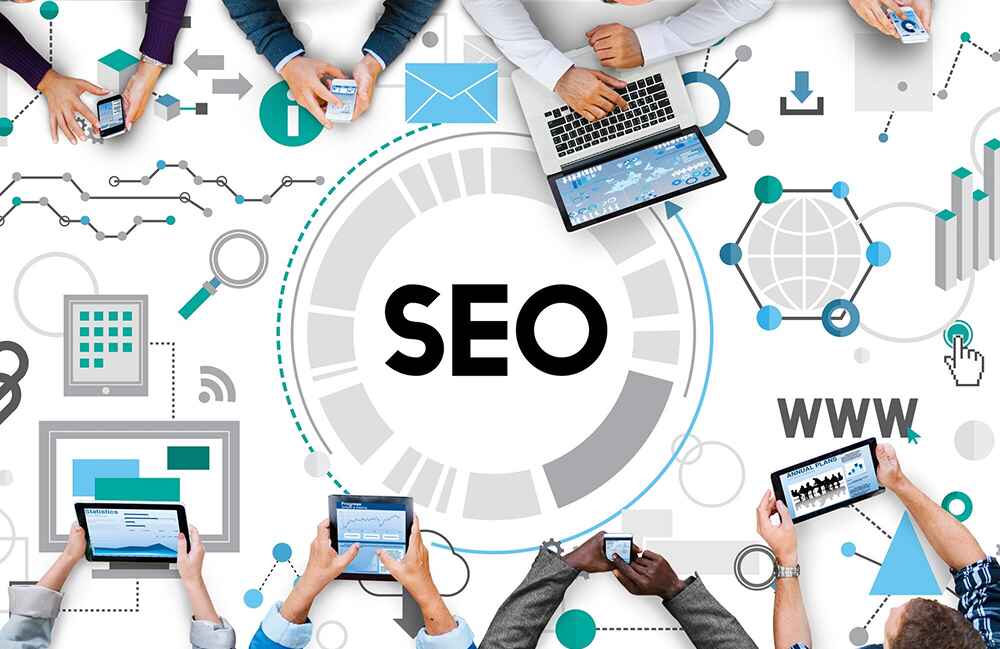In today’s digital-first world, having a strong online presence is no longer optional — it’s essential for business success. With more than 4.9 billion internet users worldwide and an ever-growing number of businesses shifting to online platforms, the competition for customer attention is intense. Businesses that fail to adapt to the digital landscape risk losing market share and customer engagement.
Digital marketing helps businesses reach their target audience more effectively, increase brand visibility, and drive sales through strategic use of online channels. Unlike traditional marketing, digital marketing allows businesses to track performance in real time, adjust strategies based on data, and directly engage with their target audience. From small startups to large corporations, businesses are investing heavily in digital strategies to stay competitive and grow.
Whether you’re looking to attract new customers, improve customer retention, or boost sales, a well-executed digital marketing strategy provides the tools and insights to make it happen. In this blog, we’ll explore the core components of a successful digital marketing strategy and why they are essential for business growth:
✅ 1. SEO (Search Engine Optimization)
SEO is the foundation of any successful digital marketing strategy. Ranking higher on Google and other search engines increases your business’s visibility and helps drive organic traffic.
Here’s why SEO is essential:
- Keyword Research: Identifying and using the right keywords helps your content appear in relevant searches.
- On-Page SEO: Optimizing website elements like meta descriptions, title tags, headers, and images improves search rankings.
- Content Optimization: Creating high-quality, informative, and engaging content that addresses customer queries boosts search engine rankings.
- Technical SEO: Improving site speed, mobile-friendliness, and security enhances user experience and search rankings.
- Backlinks: Building high-quality backlinks from authoritative websites increases your domain authority and search visibility.
Businesses that invest in SEO enjoy long-term benefits, including consistent organic traffic and improved search visibility, which leads to higher conversion rates.
✅ 2. PPC (Pay-Per-Click) Advertising
PPC allows businesses to target specific audiences and generate immediate traffic through paid ads on platforms like Google Ads and social media.
Benefits of PPC advertising include:
- Targeted Ads: Reach customers based on location, interests, demographics, and search behavior.
- Immediate Results: Unlike SEO, PPC generates quick traffic and leads.
- Cost Control: Set daily budgets and adjust based on performance to maximize ROI.
- Retargeting: Reach customers who have interacted with your brand but haven’t converted yet.
- Performance Tracking: Monitor ad performance in real time and adjust strategies accordingly.
A well-managed PPC campaign increases brand visibility, drives traffic, and boosts sales while allowing for precise control over advertising costs.
✅ 3. Social Media Marketing
Social media platforms like Facebook, Instagram, LinkedIn, Twitter, and TikTok are powerful tools for building brand awareness, engaging with customers, and driving sales.
Effective social media strategies include:
- Content Strategy: Posting a mix of educational, entertaining, and promotional content keeps audiences engaged.
- Influencer Marketing: Collaborating with influencers to promote your products increases reach and credibility.
- Community Building: Responding to comments, messages, and reviews helps build customer trust and loyalty.
- Social Ads: Running targeted ads on social media platforms helps reach specific audience segments.
- User-Generated Content: Encouraging customers to share photos and reviews creates social proof and increases credibility.
An active and well-managed social media presence enhances customer engagement, increases brand loyalty, and drives direct sales.
✅ 4. Content Marketing
Content marketing is about creating and distributing valuable content that attracts and engages your target audience. It helps position your business as an industry authority and drives long-term organic traffic.
Effective content marketing strategies include:
- Blogging: Publishing informative and engaging articles that address customer pain points and industry trends.
- Video Content: Creating how-to videos, product demos, and behind-the-scenes clips to engage audiences.
- Infographics: Visually appealing data and statistics increase content shareability.
- E-Books & Whitepapers: Providing in-depth insights and solutions builds authority and generates leads.
- Storytelling: Sharing your brand’s journey and customer success stories humanizes your business and builds trust.
High-quality content builds trust with your audience, improves search rankings, and increases customer retention.
✅ 5. Email Marketing
Email marketing remains one of the most effective channels for nurturing leads and maintaining customer relationships. A well-crafted email strategy helps you stay connected with your audience and drive repeat business.
Key email marketing tactics include:
- Welcome Emails: Introduce new subscribers to your brand and offerings.
- Personalized Recommendations: Use customer behavior data to suggest products and services.
- Abandoned Cart Emails: Remind customers about incomplete purchases to recover lost sales.
- Newsletters: Provide updates, industry news, and product announcements to keep your audience engaged.
- Exclusive Offers: Offer discounts and promotions to increase customer loyalty and repeat purchases.
Email marketing allows businesses to communicate directly with their audience, providing a high return on investment (ROI) and increasing customer retention rates.
✅ 6. Influencer and Affiliate Marketing
Partnering with influencers and affiliates can help businesses reach new audiences and build brand credibility.
Benefits of influencer and affiliate marketing include:
- Wider Reach: Influencers have established audiences that can introduce your brand to new customers.
- Targeted Promotion: Collaborate with influencers whose audience matches your target market.
- Performance-Based Payment: Pay based on sales or engagement, ensuring cost-effectiveness.
- Authenticity: Influencer endorsements often feel more genuine than traditional ads.
Leveraging influencers and affiliates can significantly increase brand awareness and sales with minimal upfront costs.
✅ 7. Online Reputation Management (ORM)
Managing your business’s online reputation is essential for building trust and credibility.
ORM strategies include:
- Review Management: Encourage satisfied customers to leave positive reviews.
- Responding to Feedback: Address negative reviews professionally and promptly.
- Social Listening: Monitor brand mentions and customer feedback across social media platforms.
- Crisis Management: Quickly address any PR issues to prevent long-term damage.
A strong online reputation increases customer confidence and positively impacts sales.
✅ 8. Data-Driven Insights and Performance Tracking
One of the biggest advantages of digital marketing is the ability to track performance and make data-driven decisions.
Essential performance tracking metrics include:
- Traffic: Monitor the number of visitors and page views.
- Conversion Rates: Track the percentage of visitors who complete a desired action (purchase, sign-up, etc.).
- Bounce Rates: Analyze how long visitors stay on your site and why they leave.
- Customer Acquisition Cost (CAC): Measure how much it costs to acquire a new customer.
- Return on Investment (ROI): Evaluate how much revenue you generate for each dollar spent on marketing.
Analyzing these insights allows businesses to refine their strategies and improve marketing performance over time.
Final Thoughts
A well-executed digital marketing strategy is a powerful tool for driving business growth. From increasing brand awareness and customer engagement to improving sales and long-term customer loyalty, digital marketing provides measurable and scalable results. Businesses that invest in SEO, PPC, content marketing, social media, and email campaigns position themselves for sustainable success in the competitive digital landscape.
Ready to grow your business? Implement these digital marketing strategies and watch your business thrive! 🚀


